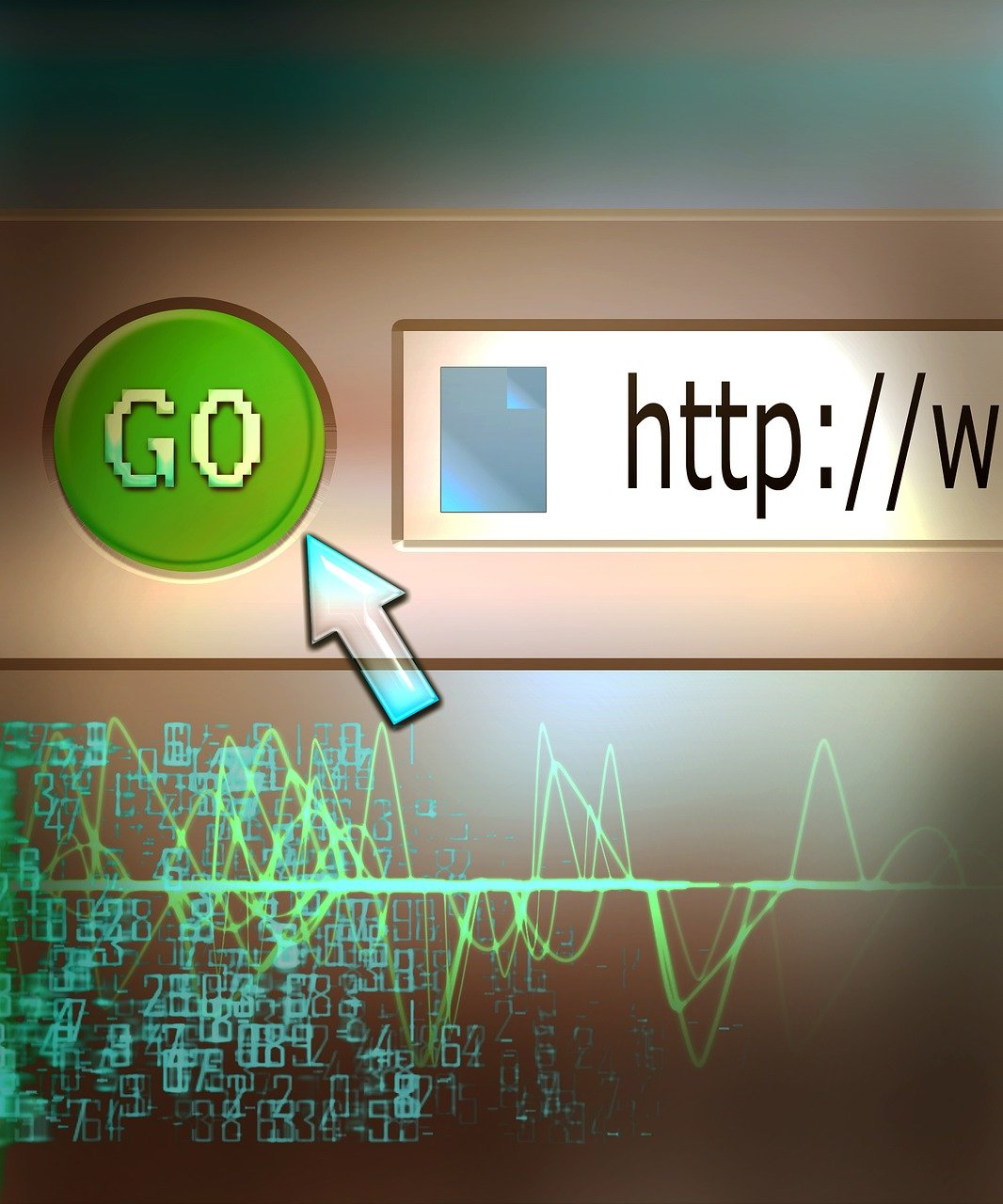Breaking into the tech industry can be both exciting and daunting, especially when you’re starting as a Junior Python Developer. With a growing demand for Python developers across various sectors, equipping yourself with the right tools, skills, and knowledge can make the difference in landing your first job. This article will guide you through practical steps and insider tips to help you launch your career as a Junior Python Developer, from building a strong foundation to acing the interview process. Dive in to discover how you can turn your passion for coding into a promising professional journey.
Understanding the Role of a Junior Python Developer
As you set out to find a job as a Junior Python Developer, it’s critical to have a comprehensive understanding of the role itself. Junior Python Developers are typically at the beginning of their careers and are expected to collaborate on introductory software projects while continuously enhancing their skills and knowledge base.
1. Job Responsibilities:
Code Development and Maintenance: Junior Python Developers are tasked with writing clean, maintainable, and efficient code. This often involves bug fixing, code refactoring, and documenting their code for future reference.
Example:
# Simple example of clean and maintainable code in Python
def calculate_area(radius):
"""Calculate the area of a circle given its radius."""
import math
if radius <= 0:
raise ValueError("Radius must be greater than zero")
return math.pi * radius ** 2
Collaboration: They work under the guidance of senior developers or team leads, contributing to larger projects and applications. Effective communication and teamwork are paramount, as they must integrate their contributions seamlessly with the overall project.
Learning and Skill Improvement: A junior developer is expected to actively continue their education, keeping up to date with the latest technologies, frameworks, and best practices in Python programming.
2. Required Skills and Knowledge:
Python Proficiency: While mastery isn’t expected at the junior level, a solid understanding of Python fundamentals is crucial. This includes core syntax, data structures (lists, dictionaries, tuples), and libraries (like os, sys, and re).
Example:
# Basic Python syntax and a common data structure
animals = ["dog", "cat", "elephant"]
for animal in animals:
print(f"{animal} has {len(animal)} letters.")
Familiarity with Web Frameworks: Depending on the employer, knowledge of popular Python frameworks like Django or Flask can be highly beneficial. These frameworks streamline web application development.
Example Using Flask:
from flask import Flask, jsonify
app = Flask(__name__)
@app.route('/')
def hello_world():
return jsonify({"message": "Hello, World!"})
if __name__ == '__main__':
app.run(debug=True)
Version Control Systems: Understanding and working with version control systems (primarily Git) is often necessary. This makes collaboration easier and keeps track of changes in the codebase.
Example Git Commands:
git init # Initialize a new git repository
git clone <repo_url> # Clone an existing repository
git add . # Stage all changes
git commit -m "message" # Commit staged changes with a message
git push # Push local changes to the remote repository
Basic Knowledge of Databases: Familiarity with SQL and basic database management (PostgreSQL, MySQL, SQLite) is often required, as many applications depend on database interactions.
Python with SQLite Example:
import sqlite3
# Connecting to SQLite database
connection = sqlite3.connect('example.db')
# Creating a cursor object
cursor = connection.cursor()
# Executing a simple query
cursor.execute('''CREATE TABLE users (id INTEGER PRIMARY KEY, name TEXT, age INTEGER)''')
connection.commit()
# Closing the connection
connection.close()
Understanding of Testing: Junior developers are often responsible for writing tests to ensure code reliability. Learning to use testing frameworks like unittest or pytest is essential.
Example with unittest:
import unittest
# Simple function to convert temperature
def fahrenheit_to_celsius(fahrenheit):
return (fahrenheit - 32) * 5 / 9
# Test case for the function
class TestTemperatureConversion(unittest.TestCase):
def test_conversion(self):
self.assertAlmostEqual(fahrenheit_to_celsius(32), 0)
self.assertAlmostEqual(fahrenheit_to_celsius(212), 100)
if __name__ == '__main__':
unittest.main()
3. Typical Workplace Environment:
Agile and Scrum: Most modern development environments employ Agile methodologies. Juniors should familiarize themselves with Agile practices, including daily stand-ups, sprint planning, and retrospectives.
Version Control and Continuous Integration: Workplaces often use tools like GitHub, GitLab, or Bitbucket for code repositories, and continuous integration tools like Jenkins or GitHub Actions.
Documentation and Best Practices: Documenting code, participating in code reviews, and adhering to style guides like PEP 8 are critical parts of the role.
By clearly understanding what a Junior Python Developer is expected to do, you can tailor your learning and preparation towards meeting these specific requirements. Understanding these aspects can set you apart and help you meet the expectations of potential employers.
Building a Strong Foundation in Python Programming
To position yourself as a strong candidate for a Junior Python Developer role, it’s indispensable to build a solid foundation in Python programming. Here are key strategies that will help you achieve this:
Core Python Concepts
Start by mastering the fundamentals of Python. Make sure you understand:
- Syntax and Semantics: Familiarize yourself with Python’s syntax which is designed to be readable and straightforward.
- Data Structures: Gain a comprehensive understanding of lists, tuples, sets, and dictionaries. Know how and when to use each structure.
- Control Flow: Learn about loops (
for,while) and conditionals (if,elif,else). - Functions and Modules: Understand how to define functions, pass parameters, return values, and import and use modules.
Here’s a quick example of a Python function utilizing control flow:
def custom_greeting(time_of_day, name):
if time_of_day == 'morning':
return f"Good morning, {name}!"
elif time_of_day == 'afternoon':
return f"Good afternoon, {name}!"
else:
return f"Good evening, {name}!"
print(custom_greeting('morning', 'Alice'))
Object-Oriented Programming (OOP)
Understanding OOP principles is crucial. Learn about:
- Classes and Objects: Create and interact with objects, understand instance methods and attributes.
- Inheritance: Grasp how derived classes extend base classes.
- Encapsulation and Polymorphism: Secure your data and implement methods in a way that makes them interchangeable.
Example of a simple class:
class Dog:
def __init__(self, name, age):
self.name = name
self.age = age
def bark(self):
return f"{self.name} says woof!"
my_dog = Dog(name="Buddy", age=3)
print(my_dog.bark())
Libraries and Frameworks
Begin by focusing on popular libraries and frameworks that are often used in entry-level positions:
- NumPy and Pandas: For data manipulation and analysis.
- Flask and Django: For web development.
- Requests: For making HTTP requests in your applications.
Example of using the Pandas library:
import pandas as pd
data = {
'name': ['Alice', 'Bob', 'Charlie'],
'age': [25, 30, 35]
}
df = pd.DataFrame(data)
print(df)
Best Practices
Follow best practices to write clean, efficient, and manageable code:
- PEP 8: The Python Enhancement Proposal 8 is the style guide for Python code. Familiarize yourself with these conventions.
- Version Control: Learn to use Git to track changes in your code and collaborate with others. GitHub is an excellent platform to showcase your projects.
- Testing: Understand the basics of writing tests using
unittestorpytest.
Example of a simple unit test with the unittest framework:
import unittest
def add(a, b):
return a + b
class TestMathFunctions(unittest.TestCase):
def test_add(self):
self.assertEqual(add(10, 5), 15)
self.assertEqual(add(-1, 1), 0)
self.assertEqual(add(-1, -1), -2)
if __name__ == '__main__':
unittest.main()
Practice and Projects
Practical experience is vital:
- Work on Projects: Build projects that interest you. These can range from simple scripts to more complex systems like a personal blog or a REST API.
- Contribute to Open Source: Gain experience and visibility by contributing to open-source projects. Platforms like GitHub and GitLab are excellent starting points.
- LeetCode and HackerRank: Use platforms like LeetCode and HackerRank to practice coding challenges which can also prepare you for technical assessments.
By committing time and effort to understand these concepts and applying them through practical projects, you will build a strong foundation in Python programming, making you a competitive candidate for Junior Python Developer roles.
Creating a Compelling Resume and Portfolio
When embarking on a career as a Junior Python Developer, creating a compelling resume and portfolio is crucial in standing out to potential employers. Here’s how to effectively showcase your skills and experiences.
Crafting an Impactful Resume
- Headline and Summary: Start with a clear, concise headline that states your desired position, e.g., “Junior Python Developer”. Follow this with a brief summary (2-3 sentences) highlighting your passion for Python, key skills, and career objectives. Customize this section for each job application to align with the specific requirements of the job description.
- Technical Skills: Create a dedicated section for your technical skills. This should include Python (of course), frameworks (such as Django, Flask), libraries (e.g., Pandas, NumPy), tools (like Git, Docker), and technologies (such as RESTful APIs, SQL).
Technical Skills - Programming Languages: Python, JavaScript - Frameworks: Django, Flask - Libraries: Pandas, NumPy - Tools and Platforms: Git, Docker, AWS - Professional Experience: List any relevant work experience in reverse-chronological order. For each position, include the company name, your job title, and the duration of employment. Provide detailed descriptions of your responsibilities and achievements. Use bullet points to highlight specific tasks where you applied Python, enhanced systems, or contributed to projects.
Professional Experience Junior Developer, XYZ Tech Solutions | June 2021 - Present - Developed and maintained backend systems using Python and Django. - Implemented RESTful APIs to support mobile and web applications. - Collaborated with front-end developers to integrate user-facing elements. - Projects: If your professional experience is limited, focus on projects. Include personal, academic, or open-source projects. Describe the problem you sought to solve, your approach, and the outcome. Use tangible metrics to quantify your results where possible.
Projects Weather Forecasting App - Developed a Python application that retrieves and displays real-time weather data using OpenWeatherMap API. - Implemented graphical representation of weather trends using Matplotlib and Pandas. - Achieved over 500 downloads within the first month of release.
Curating a Strong Portfolio
- GitHub Repository: An active GitHub profile is essential. Employers often assess candidates by reviewing their code repositories. Make sure your repositories are well-organized, include clear README files, and demonstrate your ability to document and maintain code.
# Project Title Detailed description of what the project does, how to install it, usage examples, and contributors. - Personal Website: Create a personal website to host your resume, projects, and a blog where you can share insights or learnings related to Python and development. This not only showcases your Python skills but also demonstrates your initiative and ability to communicate effectively.
- Showcase Diverse Projects: Ensure your portfolio projects are varied to display your range of skills. This could include web applications, data analysis scripts, automation tools, or machine learning models. Use Jupyter notebooks when relevant to demonstrate data manipulation and analysis.
- Continuous Improvement: Regularly update your portfolio with new projects and improvements. Show your learning journey through progress in project complexity and scope.
A well-structured resume and robust portfolio are indispensable when applying for Junior Python Developer roles. They provide a concrete demonstration of your skills and a tangible record of your achievements. Start building early, update frequently, and tailor them to each job application to maximize your chances of landing your desired role. For detailed guidelines on creating a resume and portfolio, visit Python.org.
Networking and Building Professional Connections
Networking and building professional connections are crucial components in finding a job as a Junior Python Developer. They can open doors to opportunities that might not be advertised publicly and provide valuable insights into the industry.
One of the most effective ways to build professional connections is through attending meetups and conferences. Python-specific conferences like PyCon are fantastic venues for networking. They not only offer enriching technical sessions but also provide ample opportunities to interact with industry professionals, speakers, and fellow attendees. To find upcoming events, check platforms like Meetup.com or the Python Software Foundation’s Events page.
Additionally, many local and online communities cater specifically to Python developers. Joining these groups can be immensely beneficial. Platforms such as Reddit, Stack Overflow, and the Python Discord server are popular among Python developers. Active participation in these forums, whether through asking questions, providing answers, or sharing projects, can help you become a recognized member of the community.
LinkedIn is another powerful tool for networking. Make sure to create a comprehensive profile highlighting your skills, projects, and any relevant experience. Connect with fellow developers, recruiters, and key industry figures. Engaging with posts, sharing articles, and commenting on discussions can further help you become visible in the professional Python community. Additionally, consider joining specific LinkedIn groups related to Python development, such as “Python Enthusiasts” or “Python Developers Network.”
For students or recent graduates, leveraging your academic network can also be a strategic move. Professors, alumni, and peers from your university often have connections to the industry. Participating in hackathons, coding bootcamps, or academic clubs can extend your reach within the community.
Collaboration on open-source projects is an excellent way to network and build your portfolio simultaneously. Websites like GitHub and GitLab host numerous open-source Python projects where you can contribute. Contributing to well-known projects can get your name recognized by influential people in the tech community. Moreover, your contributions reflect responsibility and skill, which can be attractive to potential employers.
Another channel to consider is professional networking events hosted by tech companies and incubators. These events are often aimed at fostering relationships between emerging developers and industry professionals. Websites like Eventbrite and Startup Digest frequently list such events.
To further deepen connections, consider reaching out for informational interviews. Sending a polite, concise message expressing your admiration for someone’s career and requesting a short meeting or chat to gain insights can be very productive. Preparing thoughtful questions and demonstrating genuine interest will leave a positive impression, possibly leading to valuable advice or job referrals.
Lastly, involvement in mentoring programs can also be advantageous. Programs like MentorCruise and CodingCoach pair you with experienced developers who can offer guidance, feedback on your code, and career advice.
Persistent and strategic networking efforts can exponentially enhance your job search, connecting you with opportunities that align with your career aspirations and helping you establish a lasting professional presence in the Python community.
Job Search Strategies and Platforms
When it comes to finding a job as a Junior Python Developer, having robust job search strategies and utilizing the right platforms can make a world of difference. Below are some targeted approaches and platforms to amplify your job search efforts:
Online Job Boards and Marketplaces
- Indeed: One of the largest job boards globally, Indeed allows you to search for Python Developer roles by filtering for junior or entry-level positions. Make use of their filters to refine job searches by location, salary, and more. Indeed Python Developer Jobs
- Glassdoor: Besides job postings, Glassdoor offers company reviews, salary insights, and interview questions, which can be invaluable for preparation. Glassdoor Python Developer Jobs
- LinkedIn: Utilize LinkedIn’s job search feature extensively. Follow companies you’d like to work for, join relevant groups, and make sure to enable the “Open to Work” feature on your profile. LinkedIn Python Developer Jobs
- Stack Overflow Jobs: Catering more to the tech community, Stack Overflow lets you search for positions and also view salary ranges for various roles. Stack Overflow Python Jobs
- AngelList: If you’re interested in startups, AngelList is your go-to platform. It features many early-stage companies looking for junior talents. AngelList Python Jobs
Specialized Tech Job Platforms
- HackerRank: While commonly used for coding practice, HackerRank also features job listings where employers actively seek out developers who’ve passed their coding challenges. HackerRank Jobs
- Hired: Hired simplifies the job search process by matching you with employers actively looking for your skill set. You create a profile, and companies will reach out to you. Hired
- Triplebyte: Specializing in matching engineers with tech companies, Triplebyte assesses your coding proficiency and then presents you to prospective employers. This often eliminates the need for repetitive coding tests. Triplebyte
Freelance Platforms
- Upwork: Freelancing can be a great way to build experience and portfolio. Upwork connects freelancers with clients needing various Python projects. Upwork Python Jobs
- Freelancer.com: Similar to Upwork, it’s another platform where you can take on freelance Python development gigs to build your portfolio and gain practical experience. Freelancer Python Jobs
Company Websites and Career Pages
Don’t overlook the effectiveness of directly visiting the career pages of companies you’re interested in. Big tech companies often have dedicated portals for interns and new graduates. Look for pages like:
- Google Careers Google Python Jobs
- Microsoft Careers Microsoft Python Jobs
- Amazon Jobs Amazon Python Jobs
Alternative Avenues
- Hackathons and Coding Competitions: Participating in hackathons or coding competitions like those hosted by Devpost or HackerEarth can get you noticed by companies sponsoring or attending the event.
- University Job Boards: If you are still in school, or an alum, utilize your university’s career center and job boards. Many companies prefer to hire junior developers straight from universities.
- Meetup and Local Job Fairs: Attend tech meetups and local job fairs. These events are excellent for making direct connections with employers who may not post all their vacancies online.
Example of a Job Application Template
Be structured in your job search approach by using a spreadsheet template to keep track of the jobs you’ve applied for. Here’s a basic example:
| Date Applied | Company | Position | Job Link | Contact Person | Status |
|--------------|------------------|------------------------|-----------------------------------------------|---------------------|------------------|
| 01/15/2023 | XYZ Tech Inc. | Junior Python Developer| [Link to Job](https://xyz-tech.com/jobs/12345)| John Doe - Recruiter| Application Sent |
| 01/17/2023 | ABC Software Ltd.| Python Developer Intern| [Link to Job](https://abc-software.com/jobs/6789)| Jane Smith - HR | Interview Scheduled |
By implementing a strategic approach and leveraging these diverse platforms, you’ll enhance your chances of landing a role as a Junior Python Developer.
Preparing for Interviews and Technical Assessments
Preparing for interviews and technical assessments as a Junior Python Developer is crucial to landing your first job in the field. Here are some specific steps and details to focus on:
Brush Up on Fundamental Concepts
Data Structures and Algorithms: Employers are keen to understand your ability to solve problems efficiently. Make sure you are comfortable with basic data structures such as lists, dictionaries, sets, and tuples, as well as common algorithms like sorting and searching. Resources like LeetCode and HackerRank offer extensive practice problems.
Object-Oriented Programming (OOP): Understand the principles of OOP such as inheritance, encapsulation, polymorphism, and abstraction. Be ready to showcase your ability to design classes and integrate them into larger systems. Here’s an example of a simple class in Python:
class Animal:
def __init__(self, species, name):
self.species = species
self.name = name
def speak(self):
raise NotImplementedError("Subclasses must implement this method")
class Dog(Animal):
def speak(self):
return f"{self.name} says Woof!"
class Cat(Animal):
def speak(self):
return f"{self.name} says Meow!"
dog = Dog("Canine", "Buddy")
cat = Cat("Feline", "Whiskers")
print(dog.speak()) # Output: Buddy says Woof!
print(cat.speak()) # Output: Whiskers says Meow!
Error Handling and Debugging: Employers may ask you about your strategies for identifying and fixing bugs. Familiarize yourself with Python’s debugging tools like pdb and practice handling exceptions using try, except, and finally blocks.
try:
x = int(input("Enter a number: "))
y = 10 / x
except ZeroDivisionError as e:
print(f"Error: {e}")
except ValueError as e:
print(f"Invalid input: {e}")
finally:
print("Execution completed.")
Engage in Mock Interviews and Coding Challenges
Mock Interviews: Platforms like Pramp provide free, peer-to-peer mock interviews tailored for software engineers. Practicing with real-time feedback can significantly boost your confidence and performance.
Coding Challenges: Frequently engage with platforms like CodinGame to practice coding puzzles and multiplayer challenges, which will also help improve your problem-solving speed and accuracy.
Familiarize Yourself with Common Interview Formats
Behavioral Interviews: Employers will assess your soft skills, such as teamwork, communication, and problem-solving. Prepare thoughtful answers using the STAR (Situation, Task, Action, Result) method to structure your responses.
Technical Interviews: This typically involves whiteboard coding or live coding on platforms like CoderPad or Interviewing.io. Practice writing code by hand or in a plain text editor to simulate these conditions.
Take-Home Assignments: Sometimes, you may be given a project to complete on your own time. Treat this like a real-world task, ensuring your code is clean, well-documented, and follows best practices, such as the PEP 8 style guide. Here are some PEP 8 guidelines you should adhere to.
Study Popular Python Libraries and Frameworks
Common Libraries: Be proficient with libraries frequently used in development, such as NumPy, pandas, and requests. Employers appreciate candidates who are versatile and can quickly adapt to different project requirements.
import numpy as np
import pandas as pd
import requests
# Example usage of requests for making HTTP requests
response = requests.get("https://jsonplaceholder.typicode.com/posts")
if response.status_code == 200:
posts = response.json()
print(posts[:2]) # Print the first two posts
Frameworks: If the job requires web development skills, familiarize yourself with Django or Flask. Understand the basics of setting up a web server, routing, and working with databases.
By preparing meticulously in these areas, you’ll be well-equipped to tackle the diverse challenges that come with interviews and technical assessments in your journey to becoming a Junior Python Developer.
Navigating Job Offers and Starting Your First Role
Once you’ve received job offers as a Junior Python Developer, it’s crucial to carefully consider them to ensure you make the best decision for your career growth. Here are a few tips to help you navigate job offers and start your first role effectively:
1. Evaluating Job Offers:
- Salary and Benefits:
Ensure the salary is competitive and sufficient for your needs. Additionally, research the full benefits package, including health insurance, retirement plans, paid time off, and any other perks. - Company Culture:
Look for companies with positive cultures that match your values. Utilize resources like Glassdoor and Indeed for employee reviews and insights into company environments. A supportive company culture will be crucial for your development as a junior developer. - Learning and Growth Opportunities:
Confirm the company’s support for learning and development, including availability of mentorship, training programs, coding workshops, and opportunities to work on varied projects. This is critical for your career advancement. - Work-Life Balance:
Investigate the company’s approach to work-life balance. Consider the work hours, flexibility, and remote work options.
2. Contracts and Negotiations:
- Understand the Contract:
Ensure you thoroughly understand the terms and conditions of your contract. This includes job responsibilities, working hours, probation period, notice period, and non-compete clauses. If any part of the contract is unclear, don’t hesitate to ask for clarification. - Negotiate if Needed:
If the offer doesn’t fully meet your expectations, don’t shy away from negotiating. Be professional and justify your requests with research and data.
3. Preparing for Your First Day:
- Familiarize Yourself with the Company’s Tools:
Request information on the tools and technologies the company uses, such as integrated development environments (IDEs), version control systems (like Git), issue tracking software (like Jira), and communication tools (like Slack). - Onboarding Process:
Understand the company’s onboarding process to help you settle in quickly. This may involve meeting team members, receiving necessary access permissions, and attending introductory training sessions.
4. Continuous Learning:
- Internal Mentorship:
Establish relationships with senior developers and mentors within the company. They can offer valuable insights and guidance. - Online Resources and Courses:
Utilize platforms like Coursera, edX, and Udemy to continue improving your Python skills and learn new technologies that are relevant to your role. - Participation in Development Communities:
Engage with online communities such as Stack Overflow, Python.org, and GitHub. These communities are excellent for solving problems, sharing knowledge, and contributing to open-source projects.
5. Adapting to the Team Environment:
- Communication:
Regularly communicate with your team, join stand-up meetings, and be transparent about your progress and challenges. This will not only boost team collaboration, but also help you to get the support you need. - Code Reviews:
Participate actively in code reviews, both as a reviewer and as a reviewee. This practice not only improves code quality but also builds a stronger understanding of best practices.
6. Tracking Your Progress:
- Set Goals:
Alongside your supervisor, establish clear, achievable goals and milestones for your first few months. This will provide a sense of direction and measurable achievements. - Seek Regular Feedback:
Request regular feedback from your superiors to understand your strengths and areas for improvement. This helps you stay aligned with the company’s expectations and improve continuously.
Navigating job offers and beginning your first role as a Junior Python Developer is a step-by-step process. Each stage is critical to ensure that you find an opportunity that fits your aspirations and that you kickstart your career on a solid foundation. By considering these factors, you can make informed decisions and set yourself up for long-term success.




